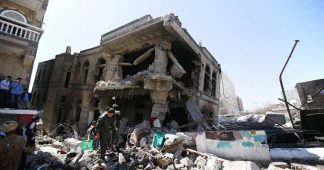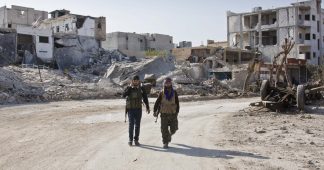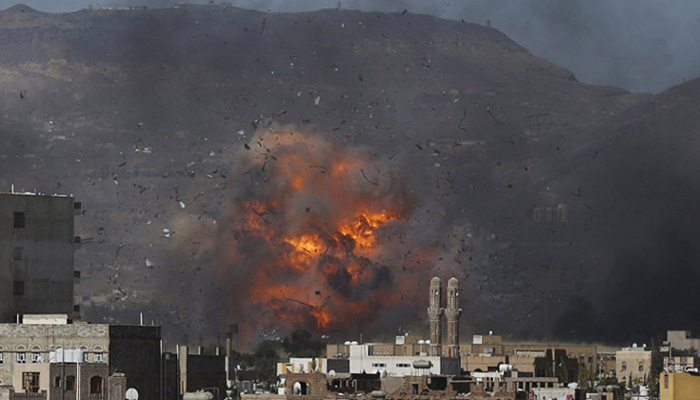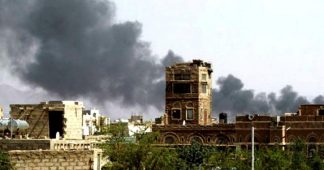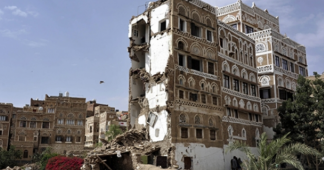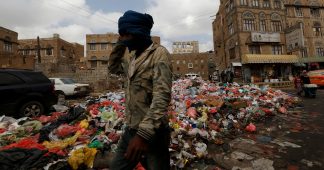By Jonathan Fenton-Harvey
8 November, 2017
In a further move to suffocate Yemen, Saudi Arabia announced on Monday that it would close all Yemen’s land, air and sea ports. While the kingdom claims it is a temporary measure, many have warned it will mostly harm Yemen’s civilians.
A statement from the state Saudi news agency, SPA, reported it was to stem the flow of weapons to Houthi rebels.
“The Coalition Forces Command decided to temporarily close all Yemeni air, sea and land ports,” the statement said, adding that aid workers and humanitarian supplies would continue to be able to enter and leave Yemen.
The blockade came after Houthi forces claimed responsibility for rockets fired at the King Fahad International Airport in Riyadh on Saturday. The Houthis said the attack was in retaliation to the Saudi-led campaign that has killed thousands of Yemeni civilians
Saudi Arabia have since blamed Iran, which suports the Houthis, for the rocket attack on the airport, calling it an “act of war”. Iran denies arming the Houthis, who say their weapons are locally produced.
A number of researchers and NGOs have raised fears that the new blockade will further worsen Yemen’s dire humanitarian crisis. Not only will weapons be restricted, but vital supplies to Yemeni civil society will not reach their target.
“The air, land and sea blockade is a full-frontal assault on the civilian population in Yemen,” Khalil Dewan, a London-based Yemen researcher, told The New Arab. “Failure to ensure that civilians and parties to the conflict have access to humanitarian aid or basic amenities amid the cholera outbreak sweeping large parts of the county will be a violation of the law of war.”
April Longley Alley, of the International Crisis Group, believes the blockade could deepen the suffering already faced by Yemen’s civilians.
A number of researchers and NGOs have raised fears that the new blockade will further worsen Yemen’s dire humanitarian crisis. Not only will weapons be restricted, but vital supplies to Yemeni civil society will not reach their target.
“The air, land and sea blockade is a full-frontal assault on the civilian population in Yemen,” Khalil Dewan, a London-based Yemen researcher, told The New Arab. “Failure to ensure that civilians and parties to the conflict have access to humanitarian aid or basic amenities amid the cholera outbreak sweeping large parts of the county will be a violation of the law of war.”
April Longley Alley, of the International Crisis Group, believes the blockade could deepen the suffering already faced by Yemen’s civilians.
“Depending on how long this goes on, it could have devastating consequences for an already desperate humanitarian situation.
“Given shrinking supplies from Hodeida port, the Saudi border crossing and Aden have increasingly filled the gap for supplying Houthi-controlled areas, which contain the majority of Yemen’s population. If all borders and ports are closed, the lifeline for these areas will be cut,” she told The New Arab.
“But the decision will also directly impact areas that are nominally controlled by the Hadi government. The caveat that these closures will not impact humanitarian assistance is not enough to ensure food and other basic supplies reach the population.”
Blockading supplies
From the beginning of the Saudi-led intervention in Yemen, the coalition has been warned against blockading supplies into Yemen and putting millions of lives at risk.
In October, a confidential UN report and statements from humanitarian NGOs said Saudi-led restrictions prevented essential supplies such as food and medicines from entering Yemen, reported Reuters.
While the Saudi coalition claimed to be preventing weapon flows to rebels at the time, numerous unarmed vessels were blocked and targeted. Essential humanitarian aid could not reach Yemen.
In August, the UN Development Programme criticised Saudi Arabia for blocking fuel deliveries to UN planes delivering the bulk of humanitarian aid for Yemen, The Independent reported. They were therefore unable to complete their missions.
“We have difficulties obtaining permission from the coalition and from the government of Yemen to transport this jet fuel to Sanaa to facilitate these flights,” said Auke Lootsma, the UNDP’s Yemen country director.
Asked why jet fuel deliveries were blocked, Mr Lootsma said “It’s a good question. I don’t have an answer.”
The country already suffers from a deadly cholera crisis – the fastest growing and largest ever recorded. It is predicted to reach a million cases by Christmas. NGOs widely blame the outbreak on the breakdown of Yemen’s healthcare system due to the war and the targeting of hospitals and sanitation facilities.
